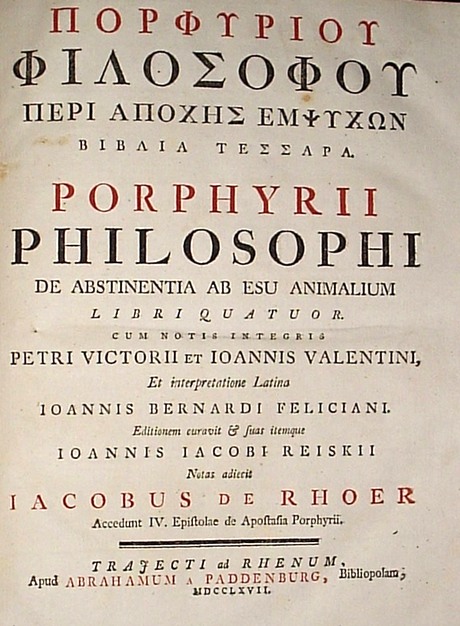
Although increasingly popular, vegetarianism is by no means a new concept. It dates back at least to ancient Greeks and Romans, who devoted quite a few books to the subject. Damian Miszczyński from the JU Institute of Classics discussed our meat-avoiding ancestors.
The idea of reducing the amount of meat we eat or even abstaining from doing it altogether is very old. What is, perhaps, surprising for some, is that it was not exclusive to Indian philosophy, but was also present in the culture of "our" ancestors – Greeks and Romans. The first mentions of vegetarianism come from literary works from 6th or 5th century BCE, which makes it at least 2,500 years old. It could be said that the roots of vegetarianism can be traced to the mythical Golden Age, when the Earth itself supposedly provided nourishment for all life and violence was unnecessary.
Kill . . . to eat, but not to please your palate!
Damian Miszczyński also mentioned the ethical aspects of vegetarianism. Plutarch, a historian and philosopher living in the 1st century CE, believed that animals have a right to live because they were born, they feel pain, and they are conscious beings who know what's good for them and what isn't (i.e. they pursue some things and avoid others). He also said that mankind is able to sustain itself without resorting to killing animals. According to Plutarch, we eat them solely for pleasure: we satisfy our urges and thereby pervert them. Humans don't eat raw meat, we deceive our palates with cooking and seasoning.

On abstinence from animal food by Porphyry, title page
Porphyry, an eminent analyst of the works of Plato and Aristotle living in the 3rd century CE, argued that a person's quality of life in the extreme stages of their lives (infancy, senility) is very similar to that of an animal: although they are unable to communicate with others, we know that they feel pain and exhibits some intellectual activity, so we take care of them.
These deliberations did not come without practical advice. Historians have found dozens of vegetarian recipes devised by our forefathers. Two out of ten volumes of Marcus Gavinus Apicius' exhaustive cookbook are devoted to meatless meals. On Farming, written by Cato the Elder, also features several recipes. Most of them are pies and cakes, but two chapters were devoted to cabbage and its many uses. Cato believed that "it is the cabbage which surpasses all vegetables".
Here's Cato's recipe for savillum, in a translation published by Loeb Classical Library in 1934: "Take 1/2 pound of flour, 2 1/2 pounds of cheese, and mix together as for the libum; add 1/4 pound of honey and 1 egg. Grease an earthenware dish with oil. When you have mixed thoroughly, pour into a dish and cover with a crock. See that you bake the centre thoroughly, for it is deepest there. When it is done, remove the dish, cover with honey, sprinkle with poppy-seed, place back under the crock for a while, then remove from the fire. Serve in the dish, with a spoon".
Picture below the title: Apollo by Briton Riviere.
Original text published by Gazeta Wyborcza.





